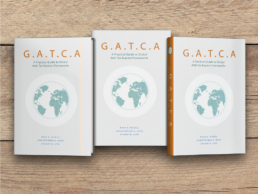Articles
Gain deeper insight with articles that give our considered opinion and predictions of where the industry will go next.
Are AML and CFT Based Practices for Validation of Tax Residency Inadequate for AEoI CRS Purposes?
Marco Zawar shares his views on why Anti Money Laundering and Counter Financing of Terrorsism related due diligence measures in Hong Kong are insufficient to meet financial institutions’ AML/KYC requirements under AEoI/CRS…
FATCA and CRS Curing Periods
Our affiliate, Marco Zawar, asks if FATCA and CRS document curing and classification requests to verify Change in Circumstances are being correctly implemented.
Deferral of FATCA and CRS Reporting Deadlines – Should You Be Taking Advantage?
With the entrance of Covid-19, a lot of things have changed in the world, and a lot of extra stressors have piled on. And it's left firms wondering, should they take advantage of the defered FATCA and CRS reporting deadlines?
Nationality, domicile, residency, citizenship and beneficial ownership
We often find that linguistic issues can cause problems for firms looking to establish the correct withholding rate for their clients. In particular, we have seen the distinctions between nationality, citizenship, domicile, residency and beneficial ownership cause a degree of avoidable consternation. In this post, we present a quick reference guide.
GATCA: A Practical Guide to Global Anti-Tax Evasion Frameworks
TConsult's subject matter experts Ross McGill, Chris Haye and Stuart Lipo have written a new book providing a practical guide to global anti-tax evasion frameworks. In this post, Stuart describes the context for the book...
The Challenges of GATCA
The global anti-tax evasion frameworks that comprise GATCA have as many commonalities as they have differences, so it makes sense to approach regulatory compliance in a holistic fashion.
In this post, we explore how smaller firms are responding to the pressures of compliance...

Job opportunity: Compliance assistant
September 29, 2025We’re looking for a Compliance Assistant to join our growing team. We welcome candidates who are detail-oriented, process-driven and interested in financial services and compliance.Read more

第 899 條:對 QI 的影響
July 9, 2025Our new white paper examines the enforcement of remedies against unfair foreign taxes in Section 899 of President Trump’s “One Big Beautiful Bill”, and its implications for QIs, NQIs under the QI Agreement and CFIs under the FASTER Directive.Read more

Three Questions You Need to Ask If You Invest in US Securities
June 26, 2025TConsult does not give of offer tax, legal or investment advice. This material is for educational purposes only. If you […]Read more

Section 899: Implications for QIs (Update)
June 25, 2025We provide an update to our earlier white paper examining the enforcement of remedies against unfair foreign taxes in Section 899 of President Trump’s “One Big Beautiful Bill”, and its implications for QIs, NQIs under the QI Agreement and CFIs under the FASTER Directive.Read more

Section 899: Implications for QIs
June 13, 2025Our new white paper examines the enforcement of remedies against unfair foreign taxes in Section 899 of President Trump’s “One Big Beautiful Bill”, and its implications for QIs, NQIs under the QI Agreement and CFIs under the FASTER Directive.Read more

The Swiss Changes, And Their Impact
April 17, 2025If you’re tuned into the tax industry, you might have already seen that Switzerland is moving from being a Model […]Read more

有簽署協議的外國金融機構面臨的問題
April 9, 2025這將會是一篇非常簡短的部落格文章(相較於我們其他的文章),但我們想澄清一些我們在業界注意到的混亂狀況。我們看到越來越多的新QI客戶已經取得GIIN,以履行他們的FATCA義務。到目前為止,一切都很好。但他們接著又在FATCA註冊系統中將其FATCA分類註冊為「有簽署協議的外國金融機構(participating FFI)」。這是可以理解的選擇,但在大多數情況下,這是不正確的。因此,讓我們把事情弄清楚。 IGAs 當FATCA於2010年首次頒布時,許多司法管轄區尚未與美國簽訂IGA。IGA並不普遍。在2010年到2014年之間,它們變得越來越普及,主要是因為很多司法管轄區發現,為了遵守FATCA,他們的金融機構必須違反保護客戶和帳戶持有人機密的國內資料保護法規。IGA是一種方便的變通方法,它允許金融機構向其國內稅務管理機關申報帳戶,因此不會違反國內法律。之後,就由稅務管理機關將資料傳送到司法管轄區境外的美國。 外國金融機構協議 2010年的FATCA基本運作模式是,如果金融機構想要遵循法規,就必須「簽署」外國金融機構協議(FFA)。此協議與QI協議並行,因此同時為兩者成員的金融機構會被歸類為「有簽署協議的FFI」或簡稱P-FFI。未簽署協議的金融機構則被歸類為「未簽署協議或NP-FFI」。 隨著參與IGA的司法管轄區越來越多,術語也發生了變化。在IGA司法管轄區中受到約束的金融機構不再是「有簽署協議的FFI」,而是根據與其居住國相關的IGA Model 1或Model 2被描述為「申報式外國金融機構(Reporting FFI)」。今天的FATCA用語是,金融機構將成為「申報式 Model 1 IGA FFI」或「申報式Model 2 IGA FFI」。雖然Model 2 IGA […]Read more

The Problem With Participating FFIs
April 9, 2025This is going to be a very quick blog post (compared to our others), but we wanted to clear up […]Read more

1042-S截止日期的問題
March 7, 2025我們很快就要到1042-S美國納稅申報季節了。意味著這是TConsult和金融機構滿腹牢騷的時節之一。因為每年都會發生一些不該發生的事情。但卻經常發生,通常是因為一件事。提交1042-S資訊申報表和1042報稅表的截止日期是3月15日(除非該日期恰逢週末,在這種情況下,截止日期是下一個工作日)。表面上看來這似乎不是什麼問題,但這會造成兩個問題。 問題1 第一部份的問題是,同一截止日期適用於支付鏈中的所有金融機構。每個人都應該在該日期或之前提交兩份申報表。此外,由於申報系統是串聯式的,一家公司所提交的1042-S申報表,必須與其交易對手所提交的申報表總數相符(也就是說,您的交易對手所申報支付給您的金額,必須與您所申報支付給客戶的金額相符)。如果不相符,您可能會收到罰款通知、罰款和/或要求償還少扣的稅額及利息。 問題2 第二個問題是,在提交1042美國報稅表時,金融機構(無論是QI或NQI)必須附上從交易對手收到的1042-S表單收款人副本。這是為了讓IRS可以查核整個支付鏈帳目,並找出是誰出錯。 現在,大多數人知道美國允許1042-S申報表展延30天,1042申報表展延6個月。但幾乎每個人都會自動申請這些展延,所以真正的提交日期會改變。今年,由於3月15日是週末,1042-S申報表的標準截止日期是3月17日,延長的截止日期是4月16日,1042申報表的延長截止日期是9月1日。但這些日期的位移只是將比對問題移動,並沒有解決問題。 骨牌效應 我們太常看到的問題是,在支付鏈中下游的金融機構延遲向客戶提供這些表單。更糟的是,他們根本就沒有提供。有時是因為他們不知道這項義務或IRS相關罰則,但有時是故意的。 對QI而言,這些義務已清楚載明在QI協議的第8.02節中。如果有任何疑問,1042-S表單的結構也清楚說明了這一點。A副本給IRS,B、C和D副本給收款人。因此,如果您的客戶正在使用綜合帳戶(omnibus accounts),那麼就申報而言,您的客戶就是收款人,必須收到收款人副本。如果您的客戶是QI,您可以參考第8.02(A)節,如果他們是非揭露式NQI,請參閱第8.02(E)節。 當機構沒有收到這些1042-S收款人副本,或是收到的時間延遲,就會對收款人和發行人造成嚴重的問題。我們已經看到許多金融機構不得不勾選8809表單上第7行的勾選框提出展延申請,以表示他們沒有及時收到1042-S來準備資訊申報表。有些金融機構甚至沒有收到1042-S的資訊,而是以電子表格或類似的方式收到。這本身不是一個大問題,但關鍵是要確保電子表格上的資料是您的交易對手在向IRS提交1042-S時所使用的資料,而且您最終會收到正式的1042-S(或替代表單)。 因此,訊息是什麼 基本上,是為了讓金融機構履行其義務。如果您的客戶中有收取美國來源FDAP所得(通常是股利和投資組合利息)的金融機構,那麼您務必向他們提供1042-S表單的收款人副本,並將其納入您的IRS申報中。 如果您想要做到真正的客戶友善,您可以寄給收款人一份試算表,其中包含用來產生1042-S表單的資料,包括將反映在1042-S表格上的全年逐筆付款明細、所得、免稅額、收款人代碼和稅率。然後,您就可以進行自己的申報,並在完成自己的申報後,立即向收款人提供正式的收款人副本。這表示您的客戶可以準備他們自己的1042-S報稅,支付鏈中的每個人都可以履行他們的義務,而無需向IRS正式投訴。 在TConsult,這是我們最大的難題之一,也是我們看到許多金融機構正在掙扎的問題。如果您無法管理您的申報,或不確定您的義務是什麼,我們可以幫助您。請立即與我們聯絡,與我們的主題專家討論。 Read more

The Problem With The 1042-S Deadline
March 7, 2025We’re fast approaching the 1042-S US information return season. Which means it’s one of the times that causes a lot […]Read more







